Today’s instructional designer is more than simply a course creator. As today’s corporations seek to implement a culture of learning, instructional designers need to bring a range of skills to the table.
While designing, building, and delivering courses are still their focus, today’s learning and development leaders must be able to manage in complex and uncertain environments, and serve learners with varying skillsets across multiple regions and cultures.
The 7 Habits of Highly Effective Instructional Designers:
1. Critical Thinking.
Instructional designers should never be considered order takers. While the decision to create and launch a course is usually initiated by a department manager needing to upskill staff, instructional designers can and should ask the hard questions — usually starting with ‘Why?’ While content varies from course to course, instructional designers should lend a critical eye to the entire lifecycle of course development and decide what content mix, development path, and delivery methods are in the best interests of all stakeholders.
2. Problem Solving.
From critical thinking, the next most important skill needed by instructional designers is problem solving. Indeed, the very act of educating employees is an attempt to solve a problem — a skills deficiency — but with so many tasks, variables, and inputs to the production of a course, today’s instructional designer needs to think quickly and address issues before they become larger problems. Taking a predictive view and accounting for fluctuations in content or schedules go a long way.
3. Project management.
Working with multiple stakeholders and managing multiple deadlines, all across different departments in different regions, require that an instructional designer have superior project management skills. Sticking to deadlines and managing budgets are key for learning program success. The formal Project Management Professional (PMP) certification may not be necessary, but the skills tested by that exam might be worthy of consideration for a learning professional.

4. Communications.
This is non-negotiable for instructional designers. The ability to communicate clearly and frequently about project status is paramount for success. Even the ability to refrain from communicating — perhaps, to let subject matter experts do their best work — is important to ensure that quality content is delivered on time. Working with subject matter experts can be tricky, and requires enhanced communication skills.
5. Excellent researching skills (and not just how to Google).
Even in the seemingly most thorough plans and proposals for learning projects, the learning leader often finds that a substantial amount of information has been omitted. Or, as the instructional designer begins to explore the topic in depth, he or she begins to discover additional layers of knowledge that could form part of the course. Today’s learning leader needs to develop a strong ability to conduct research into a discipline without simply relying on the results from the first two pages of Google. Perhaps seeking an alliance with an industry trade group or speaking with facilitators from a local Meetup could provide the backgrounder or resources to make a learning project successful. Industry portal eLearning Industry considers research a top skill.
6. Writing ability.
While multimedia elements have come to dominate much of the delivery of learning modules, strong writing skills are always in demand. From developing the project plan, to scripting the dialogue for a video, to editing the exam questions and answers from a subject matter expert, to explaining the results to senior management, an instructional designer must possess superior writing skills.
7. Visualize.
Visualize can mean a few things. Visualizing content and making decisions about the right mix of visual and creative elements for a course can dramatically affect the learning experience of the end user.
But visualization is important from a much larger perspective:
the learning and development leader must have a vision for the learning
function as a whole. Are instructional designers visionaries?
Absolutely.




